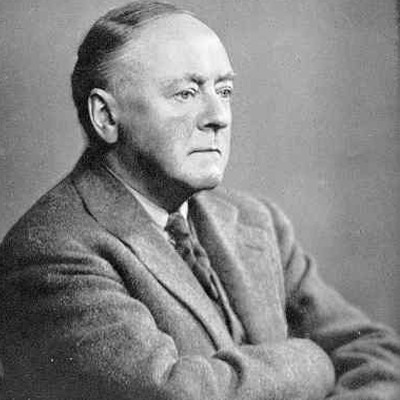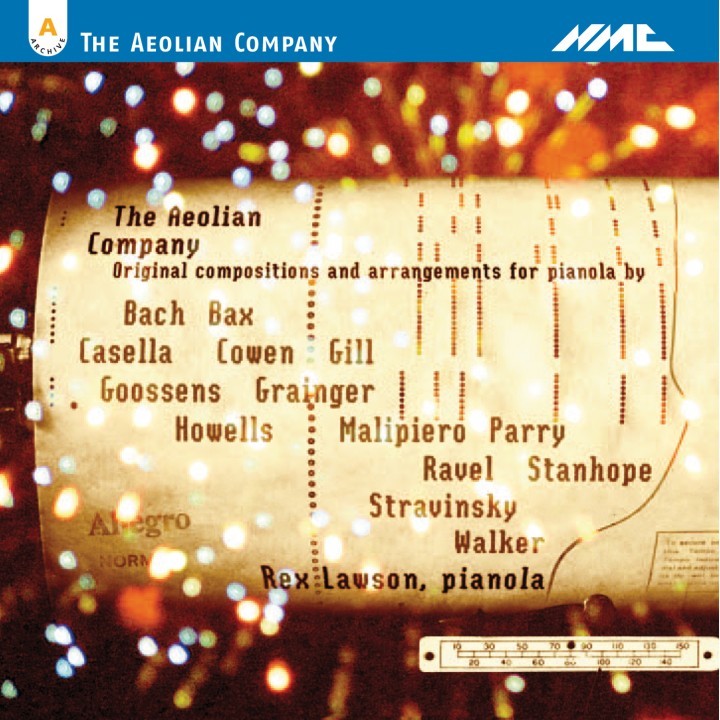Arnold Bax
Arnold Bax was born in London in 1883. His parents were of independent means, and Bax never had to earn a living – a fact that strongly influenced his musical development.
While studying at the Royal Academy of Music in London, with Frederick Corder (composition) and Tobias Matthay (piano) he discovered the poetry of W.B. Yeats, and as a result visited Ireland – an inspiration which lasted the rest of his life, as for many years Irish programmes and images were reflected in his music. Musically Bax swayed between the influences of Irish folksong and the Germanic tradition: a number of orchestral works grew out of an abortive attempt to write an opera on Irish legends; a 1910 visit to Russia was also influential.
Bax wrote many of his best scores during the period 1912 to 1918, including The Happy Forest (1914/ 1921), Summer Music (1917/ 1921), The Garden of Fand (1913, orch 1916) and November Woods (1917).
The Easter Rising in Dublin in 1916 had affected Bax deeply; by the time he came to write the powerful First Symphony (1921-2) his divided loyalties as well as his horror at the Irish civil war found their way into its elegiac slow movement. Once launched as a symphonist Bax went on to write six more, revealing with his Third Symphony (1928-9) the presence of Sibelius on the musical scene of the late 1920s. It was to Sibelius that he dedicated his next work, Winter Legends for piano and orchestra (1929-30).
During the 1930s he started receiving honours – honorary degrees, his knighthood in 1937, and in 1942 Master of the King's Music. At the end of his life Bax travelled widely around Ireland; he died in Cork in 1953.
Arnold Bax was born in London in 1883. His parents were of independent means, and Bax never had to earn a living – a fact that strongly influenced his musical development.
While studying at the Royal Academy of Music in London, with Frederick Corder (composition) and Tobias Matthay (piano) he discovered the poetry of W.B. Yeats, and as a result visited Ireland – an inspiration which lasted the rest of his life, as for many years Irish programmes and images were reflected in his music. Musically Bax swayed between the influences of Irish folksong and the Germanic tradition: a number of orchestral works grew out of an abortive attempt to write an opera on Irish legends; a 1910 visit to Russia was also influential.
Bax wrote many of his best scores during the period 1912 to 1918, including The Happy Forest (1914/ 1921), Summer Music (1917/ 1921), The Garden of Fand (1913, orch 1916) and November Woods (1917).
The Easter Rising in Dublin in 1916 had affected Bax deeply; by the time he came to write the powerful First Symphony (1921-2) his divided loyalties as well as his horror at the Irish civil war found their way into its elegiac slow movement. Once launched as a symphonist Bax went on to write six more, revealing with his Third Symphony (1928-9) the presence of Sibelius on the musical scene of the late 1920s. It was to Sibelius that he dedicated his next work, Winter Legends for piano and orchestra (1929-30).
During the 1930s he started receiving honours – honorary degrees, his knighthood in 1937, and in 1942 Master of the King's Music. At the end of his life Bax travelled widely around Ireland; he died in Cork in 1953.
Compilations with this composer
CompilationsExternal Links
Music Map
Discover more about the classical music of today with NMC's Music Map, and exciting and educational online tool which enables you to see and hear the connections between composers, their teachers, pupils, influences and their works.
Music Map

